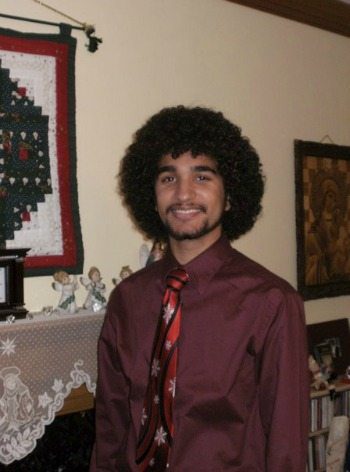
Millennials are lazy. Their high ambitions mask an underlying laziness and sense of entitlement, when it comes to their approach to work.
How many times have we heard this negative stereotype? The one that assumes the Millennial generation isn’t willing to work hard and that they expect unrealistic levels of success just to fall into their laps?
Hopefully, after reading our “Millennial Mavericks” series, you’ve had the opportunity to meet some young professionals who defy these negative stereotypes. Perhaps Millennials want the same things we all do, such as a rewarding career built from hard work, but they simply have a different frame of reference that we can take the time to understand. After all, this understanding might remove some of the unfair labels Millennials bear, as well as create a more productive work environment for all.
Evan Orie, an Associate of Technology at Sapient Government Services (Sapient), is another government contractor from the Millennial generation who isn’t afraid of hard work, and who knows exactly what he wants from his career and his life. Evan shares his insight into the Millennials, as well as his views on climbing the corporate ladder, in our interview below:
WashingtonExec: Please provide some background information about yourself, and also include your career goals.
Evan Orie: I grew up in the suburbs of Richmond. During elementary school up through early high school, I had always wanted to become a math teacher. I had always enjoyed and excelled in mathematics, so it seemed like a great way to continue doing what I loved. However, I took my first programming course in 10th grade and then was introduced to Physics the year after, which showed me practical ways to use math. When I started my college career, the big question I faced was “Which subject should I major in: Computer Science or Engineering (basically applied physics)?” I initially gravitated more toward engineering and started down that path, but soon realized that I loved programming too much not to make that my primary focus. In 2011, I graduated from Virginia Tech with a B.S. in Computer Science and then was immediately hired by Sapient as a software developer. Since then, I have had no regrets: I’ve absolutely loved the opportunity to design and write code for a living.
My career goals are actually fairly modest. I have made a point to make my spiritual life a priority in my life, so when I have the extra time/resources to devote to something, I tend to use it to further my spiritual goals, whether that be getting involved in church small groups, volunteering for service projects, or joining a social justice organization. All that being said, I have little interest in climbing the corporate ladder.
WashingtonExec: What do you think are the biggest misconceptions of the Millennial generation?
Evan Orie: The biggest misconception I continually hear is that Millennials are lazy.
We are stereotyped as being the unemployed twenty-something living in our parents’ basements because we can’t find a job that’s “perfect” for us.
The reality of the situation is much more nuanced. I have a few peers who do live with their parents and have struggled with their career, but it is not at all due to laziness.
One aspect is that we were brought up in an age where we were told we could be anything: an astronaut, an artist, a governor, an athlete. The reality is that there is not always a market for every subject offered as a major in college (especially with the recent recession going on). However, by this point, many people have school loans and it becomes quite daunting to take on more school loans to invest in an education that is more marketable.
WashingtonExec: What strengths do you think Millennials bring to their employers, and how can companies better leverage those strengths so that Millennials can contribute more to the teams/projects they work on?
Evan Orie: Millennials have slowed down the societal clock when it comes to settling down, being more concerned about really experiencing the world before growing roots in any given place. While this can be seen as a negative thing in some perspectives, it does offer a great opportunity to companies. Many of us are willing to take the 9-month contract out to California and really enjoy it, rather than getting fatigued from being so far away from family! Companies can take this opportunity to get into projects that they otherwise would not have had the willing manpower to work on.
WashingtonExec: What excites you most about going to work each day?
Evan Orie: The most exciting part of work is when I get to take part in the technical design process. Most of my school experience involved projects that had a particular solution in mind, which really constrained creativity in the design process. However, the real world is much different in that the end goals are not artificially contrived. Instead, there is more room for creative solutions, which makes the problem-solving process very engaging.
WashingtonExec: How can the government bring more talented Millennials into the fold? What would appeal to them, as it relates to career paths, benefits, etc.?
Evan Orie: Government organizations should take the advice of the countless articles we read on how to improve productivity.
It’s not about cramming in more hours of work, it’s about providing your employees an environment where creativity can thrive.
If people like coming to work, then they will inherently do better work. The government needs to be more willing to shake things up a bit, whether it comes to management hierarchy, company culture, or whatever.
WashingtonExec: What is something most people don’t know about you?
Evan Orie: I’m a pretty quiet guy who usually avoids taking part in opinionated discussions; I just kind of “go with the flow”. However, I actually do have deep convictions about life and stick to my principles, which tends to surprise people when they learn more and more about me.


